Ensuring the optimal performance of your HVAC system is crucial for maintaining comfort, efficiency, and safety in any building. Adhering to technical HVAC standards is the cornerstone of achieving this goal. In this guide, we will delve into the best practices that can help you maintain and optimize your HVAC system.
Understanding HVAC Standards
HVAC (Heating, Ventilation, and Air Conditioning) standards are a set of guidelines and best practices designed to ensure that HVAC systems are installed, maintained, and operated efficiently and safely. These standards are established by various organizations such as the American Society of Heating, Refrigerating and Air-Conditioning Engineers (ASHRAE), and they cover everything from system design to maintenance protocols.
By adhering to these standards, you ensure that your HVAC system runs smoothly and effectively, minimizing the risk of breakdowns and maximizing energy efficiency. Following these guidelines helps in avoiding unnecessary costs and ensures that the system complies with legal and environmental requirements. It’s essential to stay updated with these standards as they evolve with technological advancements and changes in regulations.
Key Best Practices for HVAC Systems
- Regular Maintenance: Routine maintenance is vital for the longevity and efficiency of your HVAC system. This includes regular inspections, cleaning of components, and timely replacement of filters. Regular maintenance helps prevent breakdowns and ensures that your system operates at peak efficiency. Neglecting maintenance can lead to increased energy consumption, reduced lifespan of the equipment, and poor indoor air quality. Scheduling professional maintenance checks at least twice a year can catch potential issues early and keep your HVAC system running efficiently. By maintaining your HVAC system regularly, you also ensure that it meets all relevant standards and operates safely.
- Proper Installation: The installation process is critical to the performance of your HVAC system. Proper sizing, correct ductwork installation, and adequate insulation are essential to prevent energy loss and ensure optimal performance. Hiring a qualified professional to handle the installation can make a significant difference. A poorly installed HVAC system can result in uneven heating or cooling, excessive noise, and increased energy bills. It’s crucial to follow manufacturer guidelines and industry standards during installation to avoid common pitfalls. Ensuring that your HVAC system is installed correctly from the start can save you from costly repairs and inefficiencies down the line.
- Energy Efficiency: Implementing energy-efficient practices not only reduces your utility bills but also minimizes your environmental impact. Consider upgrading to energy-efficient HVAC units, using programmable thermostats, and sealing any leaks in the ductwork to enhance efficiency. An energy-efficient HVAC system uses less power to provide the same level of comfort, which can significantly lower your energy costs. Additionally, many energy-efficient upgrades are eligible for rebates and incentives, making them a cost-effective choice. Regularly checking for and sealing leaks in the ductwork can prevent energy loss and improve the overall efficiency of your HVAC system.
- Indoor Air Quality: Maintaining good indoor air quality is a key aspect of HVAC best practices. This involves using high-quality air filters, ensuring proper ventilation, and controlling humidity levels. Poor indoor air quality can lead to health issues and reduce overall comfort. Regularly replacing air filters and cleaning ducts can significantly improve air quality by removing dust, allergens, and other pollutants. Using dehumidifiers or humidifiers as needed can help maintain a comfortable and healthy indoor environment. Monitoring and managing indoor air quality is essential for the well-being of occupants and the efficiency of your HVAC system.
- Adhering to Regulations: Stay updated with local and national HVAC regulations and standards. Compliance with these regulations is not only a legal requirement but also ensures that your system is safe and efficient. This includes adherence to refrigerant handling protocols and energy codes. Failure to comply with regulations can result in fines, legal issues, and potential safety hazards. Regularly reviewing and understanding the latest regulations can help you avoid these risks and ensure that your HVAC system is up to code. Keeping documentation of compliance can also be beneficial for inspections and audits.
The Role of Technology in HVAC
Advancements in technology have significantly impacted HVAC systems. Modern HVAC systems come equipped with smart technology that allows for remote monitoring and control, predictive maintenance, and enhanced energy management. Embracing these technological advancements can lead to more efficient and reliable HVAC systems. Smart thermostats, for instance, can learn your schedule and adjust temperatures automatically, providing both comfort and energy savings. Predictive maintenance tools can detect potential issues before they become major problems, reducing downtime and repair costs. Integrating these technologies into your HVAC system can optimize performance and enhance user experience.
Why Choose MDL Solutions?
At MDL Solutions, we are committed to providing top-notch HVAC services that adhere to the highest technical standards. Our team of experts is dedicated to ensuring that your HVAC system is installed, maintained, and operated with precision and care. Whether you need routine maintenance, system upgrades, or emergency repairs, we have the expertise to handle it all. Our professionals stay updated with the latest industry standards and use state-of-the-art technology to deliver exceptional service. Choosing MDL Solutions means choosing reliability, efficiency, and quality. Trust us to help you achieve and maintain the optimal performance of your HVAC system. Contact us today for all your HVAC needs.

